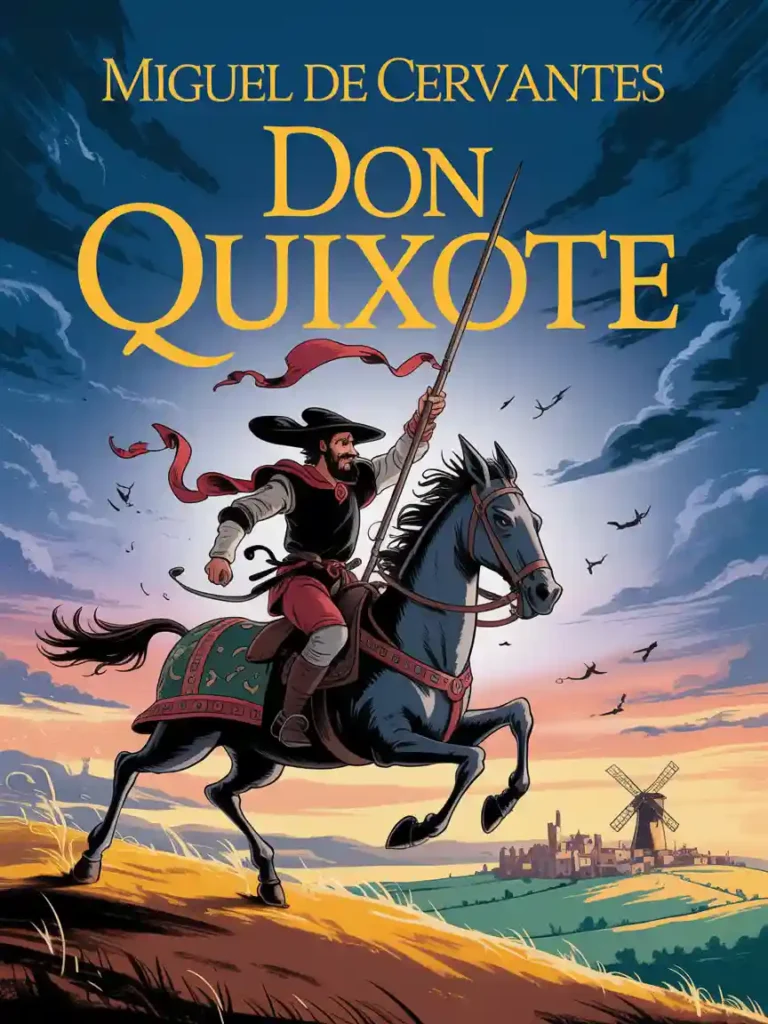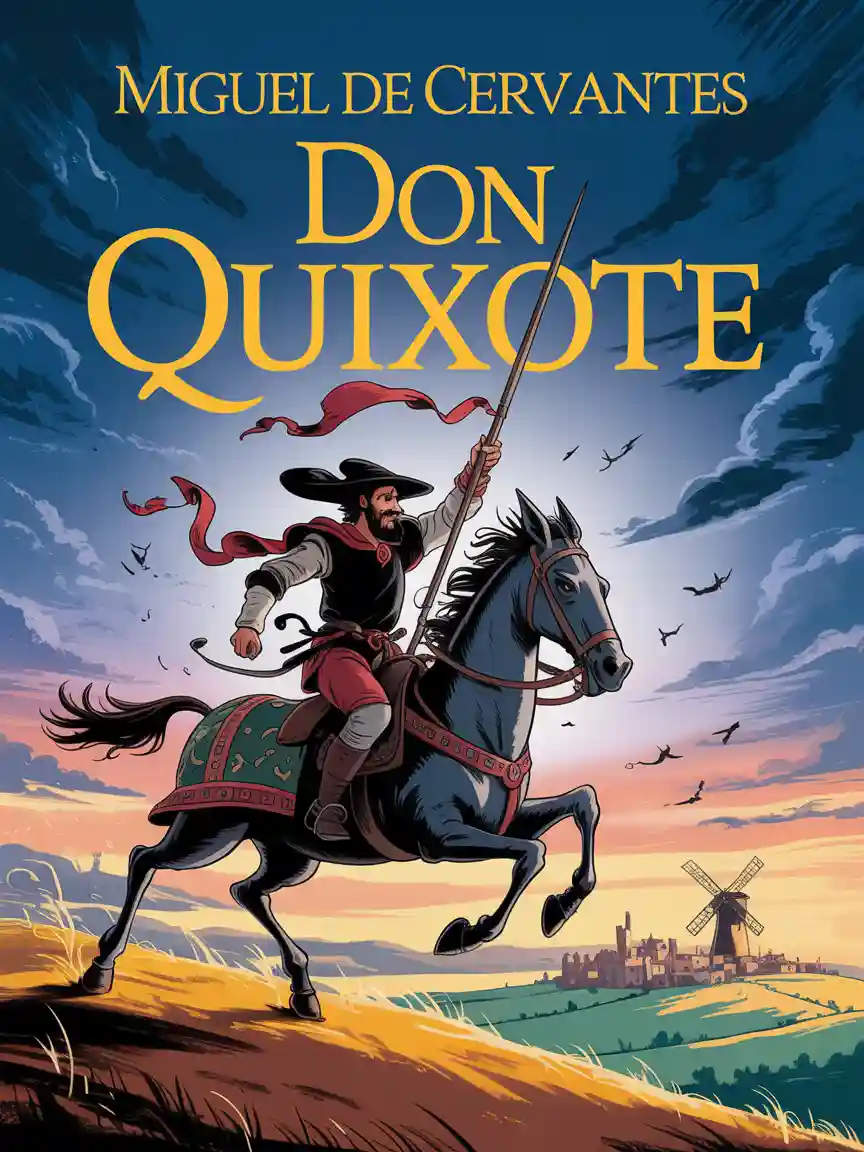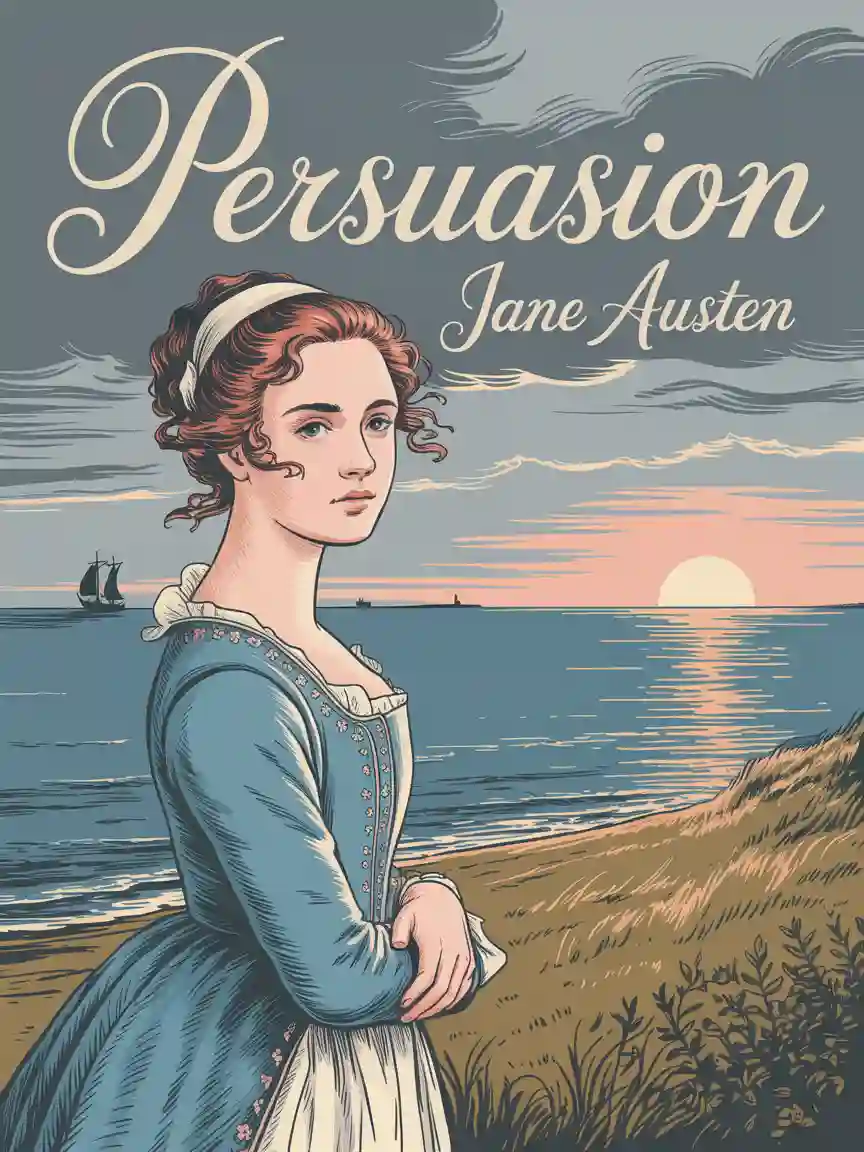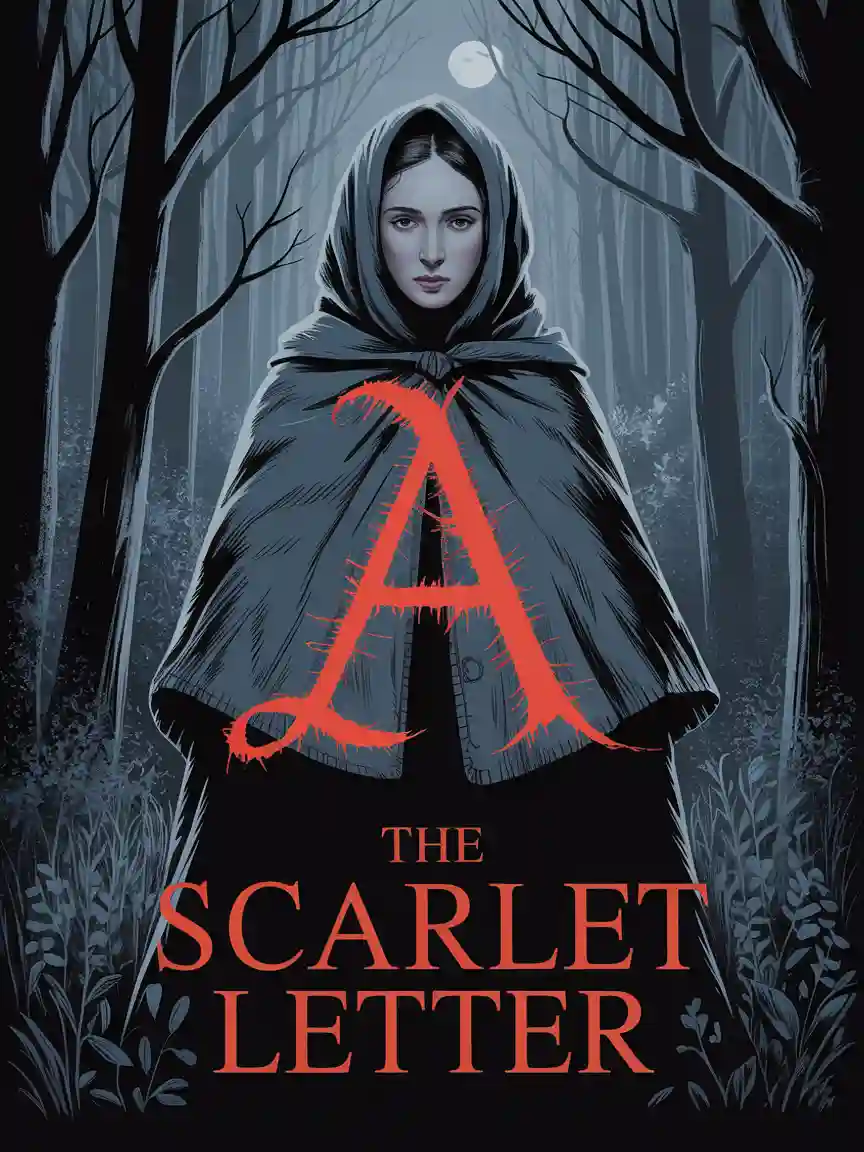CHAPTER 48
IN WHICH THE CANON PURSUES THE SUBJECT OF THE BOOKS OF CHIVALRY, WITH
OTHER MATTERS WORTHY OF HIS WIT
“It is as you say, senor canon,” said the curate; “and for that reason those
who have hitherto written books of the sort deserve all the more censure for
writing without paying any attention to good taste or the rules of art, by
which they might guide themselves and become as famous in prose as the
two princes of Greek and Latin poetry are in verse.”
“I myself, at any rate,” said the canon, “was once tempted to write a book
of chivalry in which all the points I have mentioned were to be observed;
and if I must own the truth I have more than a hundred sheets written; and
to try if it came up to my own opinion of it, I showed them to persons who
were fond of this kind of reading, to learned and intelligent men as well as
to ignorant people who cared for nothing but the pleasure of listening to
nonsense, and from all I obtained flattering approval; nevertheless I pro-
ceeded no farther with it, as well because it seemed to me an occupation in-
consistent with my profession, as because I perceived that the fools are
more numerous than the wise; and, though it is better to be praised by the
wise few than applauded by the foolish many, I have no mind to submit my-
self to the stupid judgment of the silly public, to whom the reading of such
books falls for the most part.
“But what most of all made me hold my hand and even abandon all idea
of finishing it was an argument I put to myself taken from the plays that are
acted now-a-days, which was in this wise: if those that are now in vogue, as
well those that are pure invention as those founded on history, are, all or
most of them, downright nonsense and things that have neither head nor
tail, and yet the public listens to them with delight, and regards and cries
them up as perfection when they are so far from it; and if the authors who
write them, and the players who act them, say that this is what they must be,
for the public wants this and will have nothing else; and that those that go
by rule and work out a plot according to the laws of art will only find some
half-dozen intelligent people to understand them, while all the rest remain
blind to the merit of their composition; and that for themselves it is better to
get bread from the many than praise from the few; then my book will fare
the same way, after I have burnt off my eyebrows in trying to observe the
principles I have spoken of, and I shall be ‘the tailor of the corner.’ And
though I have sometimes endeavoured to convince actors that they are mis-
taken in this notion they have adopted, and that they would attract more
people, and get more credit, by producing plays in accordance with the
rules of art, than by absurd ones, they are so thoroughly wedded to their
own opinion that no argument or evidence can wean them from it.
“I remember saying one day to one of these obstinate fellows, ‘Tell me,
do you not recollect that a few years ago, there were three tragedies acted in
Spain, written by a famous poet of these kingdoms, which were such that
they filled all who heard them with admiration, delight, and interest, the ig-
norant as well as the wise, the masses as well as the higher orders, and
brought in more money to the performers, these three alone, than thirty of
the best that have been since produced?’
“‘No doubt,’ replied the actor in question, ‘you mean the “Isabella,” the
“Phyllis,” and the “Alexandra.”‘
“‘Those are the ones I mean,’ said I; ‘and see if they did not observe the
principles of art, and if, by observing them, they failed to show their superi-
ority and please all the world; so that the fault does not lie with the public
that insists upon nonsense, but with those who don’t know how to produce
something else. “The Ingratitude Revenged” was not nonsense, nor was
there any in “The Numantia,” nor any to be found in “The Merchant Lover,”
nor yet in “The Friendly Fair Foe,” nor in some others that have been writ-
ten by certain gifted poets, to their own fame and renown, and to the profit
of those that brought them out;’ some further remarks I added to these, with
which, I think, I left him rather dumbfoundered, but not so satisfied or con-
vinced that I could disabuse him of his error.”
“You have touched upon a subject, senor canon,” observed the curate
here, “that has awakened an old enmity I have against the plays in vogue at
the present day, quite as strong as that which I bear to the books of chivalry;
for while the drama, according to Tully, should be the mirror of human life,
the model of manners, and the image of the truth, those which are presented
now-a-days are mirrors of nonsense, models of folly, and images of lewd-
ness. For what greater nonsense can there be in connection with what we
are now discussing than for an infant to appear in swaddling clothes in the
first scene of the first act, and in the second a grown-up bearded man? Or
what greater absurdity can there be than putting before us an old man as a
swashbuckler, a young man as a poltroon, a lackey using fine language, a
page giving sage advice, a king plying as a porter, a princess who is a
kitchen-maid? And then what shall I say of their attention to the time in
which the action they represent may or can take place, save that I have seen
a play where the first act began in Europe, the second in Asia, the third fin-
ished in Africa, and no doubt, had it been in four acts, the fourth would
have ended in America, and so it would have been laid in all four quarters
of the globe? And if truth to life is the main thing the drama should keep in
view, how is it possible for any average understanding to be satisfied when
the action is supposed to pass in the time of King Pepin or Charlemagne,
and the principal personage in it they represent to be the Emperor Heraclius
who entered Jerusalem with the cross and won the Holy Sepulchre, like
Godfrey of Bouillon, there being years innumerable between the one and
the other? or, if the play is based on fiction and historical facts are intro-
duced, or bits of what occurred to different people and at different times
mixed up with it, all, not only without any semblance of probability, but
with obvious errors that from every point of view are inexcusable? And the
worst of it is, there are ignorant people who say that this is perfection, and
that anything beyond this is affected refinement. And then if we turn to sa-
cred dramas—what miracles they invent in them! What apocryphal, ill-de-
vised incidents, attributing to one saint the miracles of another! And even in
secular plays they venture to introduce miracles without any reason or ob-
ject except that they think some such miracle, or transformation as they call
it, will come in well to astonish stupid people and draw them to the play. All
this tends to the prejudice of the truth and the corruption of history, nay
more, to the reproach of the wits of Spain; for foreigners who scrupulously
observe the laws of the drama look upon us as barbarous and ignorant,
when they see the absurdity and nonsense of the plays we produce. Nor will
it be a sufficient excuse to say that the chief object well-ordered govern-
ments have in view when they permit plays to be performed in public is to
entertain the people with some harmless amusement occasionally, and keep
it from those evil humours which idleness is apt to engender; and that, as
this may be attained by any sort of play, good or bad, there is no need to lay
down laws, or bind those who write or act them to make them as they ought
to be made, since, as I say, the object sought for may be secured by any
sort. To this I would reply that the same end would be, beyond all compari-
son, better attained by means of good plays than by those that are not so; for
after listening to an artistic and properly constructed play, the hearer will
come away enlivened by the jests, instructed by the serious parts, full of ad-
miration at the incidents, his wits sharpened by the arguments, warned by
the tricks, all the wiser for the examples, inflamed against vice, and in love
with virtue; for in all these ways a good play will stimulate the mind of the
hearer be he ever so boorish or dull; and of all impossibilities the greatest is
that a play endowed with all these qualities will not entertain, satisfy, and
please much more than one wanting in them, like the greater number of
those which are commonly acted now-a-days. Nor are the poets who write
them to be blamed for this; for some there are among them who are perfect-
ly well aware of their faults, and know what they ought to do; but as plays
have become a salable commodity, they say, and with truth, that the actors
will not buy them unless they are after this fashion; and so the poet tries to
adapt himself to the requirements of the actor who is to pay him for his
work. And that this is the truth may be seen by the countless plays that a
most fertile wit of these kingdoms has written, with so much brilliancy, so
much grace and gaiety, such polished versification, such choice language,
such profound reflections, and in a word, so rich in eloquence and elevation
of style, that he has filled the world with his fame; and yet, in consequence
of his desire to suit the taste of the actors, they have not all, as some of them
have, come as near perfection as they ought. Others write plays with such
heedlessness that, after they have been acted, the actors have to fly and ab-
scond, afraid of being punished, as they often have been, for having acted
something offensive to some king or other, or insulting to some noble fami-
ly. All which evils, and many more that I say nothing of, would be removed
if there were some intelligent and sensible person at the capital to examine
all plays before they were acted, not only those produced in the capital it-
self, but all that were intended to be acted in Spain; without whose ap-
proval, seal, and signature, no local magistracy should allow any play to be
acted. In that case actors would take care to send their plays to the capital,
and could act them in safety, and those who write them would be more care-
ful and take more pains with their work, standing in awe of having to sub-
mit it to the strict examination of one who understood the matter; and so
good plays would be produced and the objects they aim at happily attained;
as well the amusement of the people, as the credit of the wits of Spain, the
interest and safety of the actors, and the saving of trouble in inflicting pun-
ishment on them. And if the same or some other person were authorised to
examine the newly written books of chivalry, no doubt some would appear
with all the perfections you have described, enriching our language with the
gracious and precious treasure of eloquence, and driving the old books into
obscurity before the light of the new ones that would come out for the
harmless entertainment, not merely of the idle but of the very busiest; for
the bow cannot be always bent, nor can weak human nature exist without
some lawful amusement.”
The canon and the curate had proceeded thus far with their conversation,
when the barber, coming forward, joined them, and said to the curate, “This
is the spot, senor licentiate, that I said was a good one for fresh and plentiful
pasture for the oxen, while we take our noontide rest.”
“And so it seems,” returned the curate, and he told the canon what he pro-
posed to do, on which he too made up his mind to halt with them, attracted
by the aspect of the fair valley that lay before their eyes; and to enjoy it as
well as the conversation of the curate, to whom he had begun to take a fan-
cy, and also to learn more particulars about the doings of Don Quixote, he
desired some of his servants to go on to the inn, which was not far distant,
and fetch from it what eatables there might be for the whole party, as he
meant to rest for the afternoon where he was; to which one of his servants
replied that the sumpter mule, which by this time ought to have reached the
inn, carried provisions enough to make it unnecessary to get anything from
the inn except barley.
“In that case,” said the canon, “take all the beasts there, and bring the
sumpter mule back.”
While this was going on, Sancho, perceiving that he could speak to his
master without having the curate and the barber, of whom he had his suspi-
cions, present all the time, approached the cage in which Don Quixote was
placed, and said, “Senor, to ease my conscience I want to tell you the state
of the case as to your enchantment, and that is that these two here, with
their faces covered, are the curate of our village and the barber; and I sus-
pect they have hit upon this plan of carrying you off in this fashion, out of
pure envy because your worship surpasses them in doing famous deeds; and
if this be the truth it follows that you are not enchanted, but hoodwinked
and made a fool of. And to prove this I want to ask you one thing; and if
you answer me as I believe you will answer, you will be able to lay your
finger on the trick, and you will see that you are not enchanted but gone
wrong in your wits.”
“Ask what thou wilt, Sancho my son,” returned Don Quixote, “for I will
satisfy thee and answer all thou requirest. As to what thou sayest, that these
who accompany us yonder are the curate and the barber, our neighbours and
acquaintances, it is very possible that they may seem to be those same per-
sons; but that they are so in reality and in fact, believe it not on any account;
what thou art to believe and think is that, if they look like them, as thou
sayest, it must be that those who have enchanted me have taken this shape
and likeness; for it is easy for enchanters to take any form they please, and
they may have taken those of our friends in order to make thee think as thou
dost, and lead thee into a labyrinth of fancies from which thou wilt find no
escape though thou hadst the cord of Theseus; and they may also have done
it to make me uncertain in my mind, and unable to conjecture whence this
evil comes to me; for if on the one hand thou dost tell me that the barber
and curate of our village are here in company with us, and on the other I
find myself shut up in a cage, and know in my heart that no power on earth
that was not supernatural would have been able to shut me in, what wouldst
thou have me say or think, but that my enchantment is of a sort that tran-
scends all I have ever read of in all the histories that deal with knights-er-
rant that have been enchanted? So thou mayest set thy mind at rest as to the
idea that they are what thou sayest, for they are as much so as I am a Turk.
But touching thy desire to ask me something, say on, and I will answer thee,
though thou shouldst ask questions from this till to-morrow morning.”
“May Our Lady be good to me!” said Sancho, lifting up his voice; “and is
it possible that your worship is so thick of skull and so short of brains that
you cannot see that what I say is the simple truth, and that malice has more
to do with your imprisonment and misfortune than enchantment? But as it is
so, I will prove plainly to you that you are not enchanted. Now tell me, so
may God deliver you from this affliction, and so may you find yourself
when you least expect it in the arms of my lady Dulcinea-”
“Leave off conjuring me,” said Don Quixote, “and ask what thou wouldst
know; I have already told thee I will answer with all possible precision.”
“That is what I want,” said Sancho; “and what I would know, and have
you tell me, without adding or leaving out anything, but telling the whole
truth as one expects it to be told, and as it is told, by all who profess arms,
as your worship professes them, under the title of knights-errant-”
“I tell thee I will not lie in any particular,” said Don Quixote; “finish thy
question; for in truth thou weariest me with all these asseverations, require-
ments, and precautions, Sancho.”
“Well, I rely on the goodness and truth of my master,” said Sancho; “and
so, because it bears upon what we are talking about, I would ask, speaking
with all reverence, whether since your worship has been shut up and, as you
think, enchanted in this cage, you have felt any desire or inclination to go
anywhere, as the saying is?”
“I do not understand ‘going anywhere,'” said Don Quixote; “explain thy-
self more clearly, Sancho, if thou wouldst have me give an answer to the
point.”
“Is it possible,” said Sancho, “that your worship does not understand ‘go-
ing anywhere’? Why, the schoolboys know that from the time they were
babes. Well then, you must know I mean have you had any desire to do
what cannot be avoided?”
“Ah! now I understand thee, Sancho,” said Don Quixote; “yes, often, and
even this minute; get me out of this strait, or all will not go right.”





